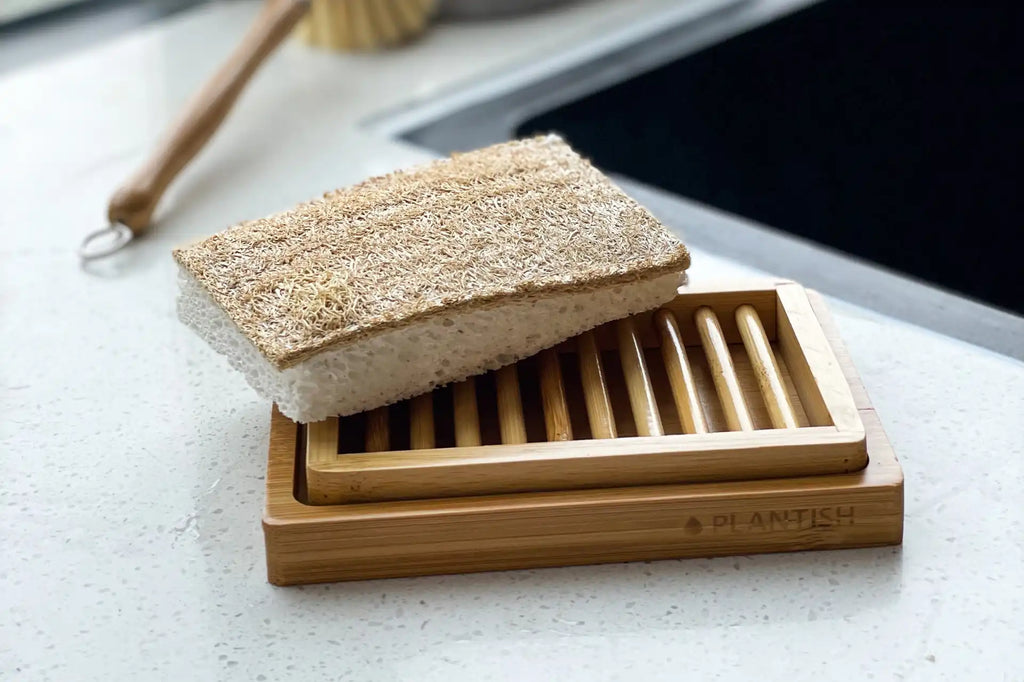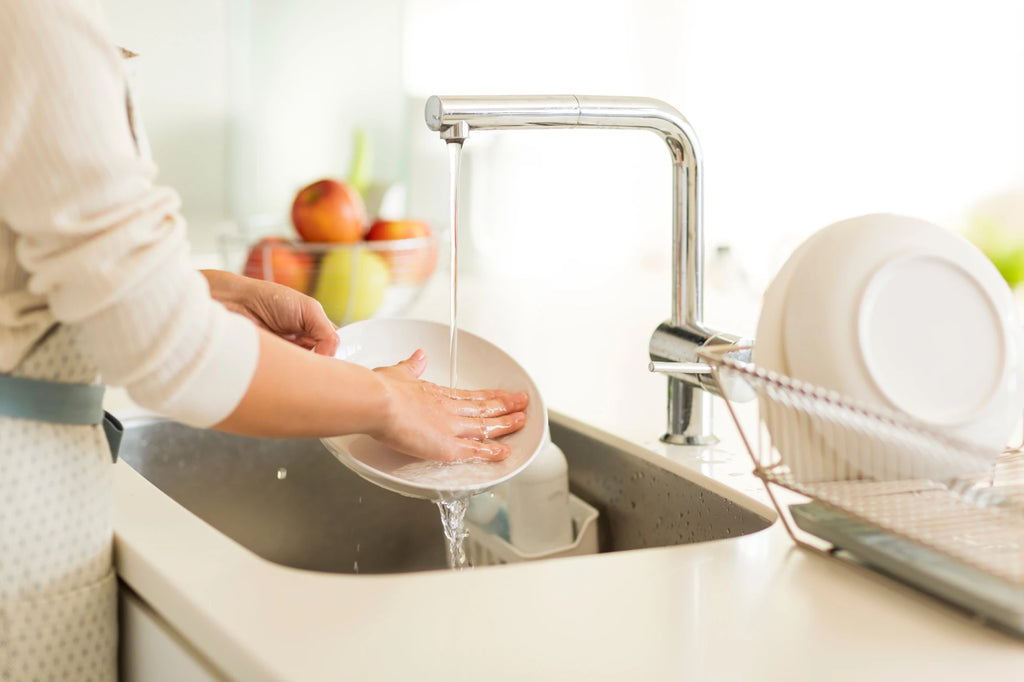The Undeniable Consequences of Regular Kitchen Sponges: Avoiding Common Mistakes

4 Minutes to Read

In our pursuit of a clean kitchen, we often overlook the issue in our kitchens - the use of plastic sponges and their hidden drawbacks. So let’s explore the truth about our sponges and the mistakes that you could avoid for a healthier, non-toxic home. By understanding the implications of our choices, we can make informed decisions to foster a more sustainable and environmentally conscious kitchen environment with all its health benefits.
Summary
- Traditional Sponges and Their Environmental Impact
- Exploring Hygienic Alternatives: Embracing Plant-Based Solutions
- Health Benefits of Plant-Based Sponges
- Knowing When to Replace Your Sponge and Proper Care
- Tips for an Eco-Friendly Kitchen Cleaning Routine
- Keep Your Spaces Clean
Traditional Sponges and Their Environmental Impact
Contrary to popular belief, most of the conventional kitchen sponges we buy are made from non-biodegradable and inorganic materials, namely plastic. While plastic of all the sponge types may seem to be more durable, they aren’t engineered for longer periods than they are intended to be used for. On average, these sponges actually last for only a few weeks to a few months, depending on how much their used and how well they’re maintained. Over time, they become breeding grounds for bacteria, compromising hygiene and potentially jeopardizing our health.
Exploring Hygienic Alternatives: Embracing Plant-Based Solutions
Fortunately, alternative options exist that not only prioritize cleanliness but also demonstrate a commitment to sustainability. Enter the realm of plant-based sponges—a superior choice especially for anyone that’s more conscientious kitchen maintenance. Crafted from biodegradable, plant-based materials such as cellulose and loofahs, these sponges are designed to naturally degrade over time, thereby mitigating their impact on the environment. Making these sponges compostable and helping be more holistic when it comes to sustainable waste management.
In light of the environmental consequences posed by plastic kitchen sponges, it's crucial to explore sustainable alternatives like these that prioritize both cleanliness and eco-consciousness. Opting for eco-friendly sponges can significantly reduce our carbon footprint and contribute to a healthier planet as these sponges are typically crafted from renewable resources such as plant-based materials or natural fibres. By selecting these options and avoiding more non eco friendly cleaning products, we actively promote a much more sustainable approach to our daily cleaning routines.

Health Benefits of Plant-Based Sponges
Beyond their positive environmental impact, these more sustainable sponges offer some huge health benefits compared to their plastic counterparts. Traditional common sponges often become breeding grounds for bacteria over time. Not only compromising the cleanliness of our kitchens but also increasing the risk of cross-contamination and potential health hazards.
In comparison, plant-based loofah sponges are designed with materials that naturally inhibit the growth of harmful bacteria, promoting a healthier and safer cleaning experience. These sponges are free from harmful chemicals and toxins often found in plastic sponges, making them ideal for individuals with sensitivities or allergies.
Knowing When to Replace Your Sponge and Proper Care
Maintaining optimal hygiene and prolonging the life of your sponge is crucial for both environmental and health reasons. While the exact lifespan of a sponge may vary, a general rule of thumb is to replace it every two to four weeks. Signs of wear and tear, foul odours, or noticeable discoloration are indicators that it's time for a new sponge, regardless of the duration.
To maximize the lifespan and effectiveness of any sponge, including eco-friendly alternatives, proper care and maintenance are essential. Thoroughly rinse the sponge after each use, wring out excess water, and store it in a well-ventilated area to prevent bacterial growth. Regular sanitization, such as microwaving or soaking the sponge in a vinegar and water solution, helps ensure a clean and safe kitchen environment.
 Tips for an Eco-Friendly Kitchen Cleaning Routine
Tips for an Eco-Friendly Kitchen Cleaning Routine
To create a sustainable and healthier kitchen cleaning routine, consider trying out the following tips:
- Choose natural, plant-based cleaning products: Opt for non-toxic, biodegradable cleaning solutions that are gentle on both your health and the environment. You can even DIY your cleaners with natural cleaners like vinegar, baking soda and lemon juice.
- Embrace reusable alternatives: Replace single-use paper towels such and disposable wipes with reusable cleaning cloths, swedish sponge cloths or microfiber towels. These options are not only more sustainable but also highly effective at trapping dirt and grime.
- Invest in eco-friendly sponges: Choosing sponges made from biodegradable materials, such as plant-based fibres or cellulose, for a healthier and safer cleaning experience.
- Practice mindful consumption: Use your cleaning tools efficiently to minimize waste. Cut sponges into smaller pieces for specific tasks or repurpose old towels as cleaning rags. Don’t be afraid to get creative!
Keep Your Spaces Clean
By choosing eco-friendly alternatives, such as a compostable eco sponge, embracing reusable cleaning cloths, opting for non-toxic cleaning solutions, and practicing mindful consumption, you can make a significant impact in reducing plastic waste and creating a cleaner, greener future. It all starts with one simple change or in this case, one sponge.
Clean up your kitchen and try out a plant-based sponge:
0 comments

